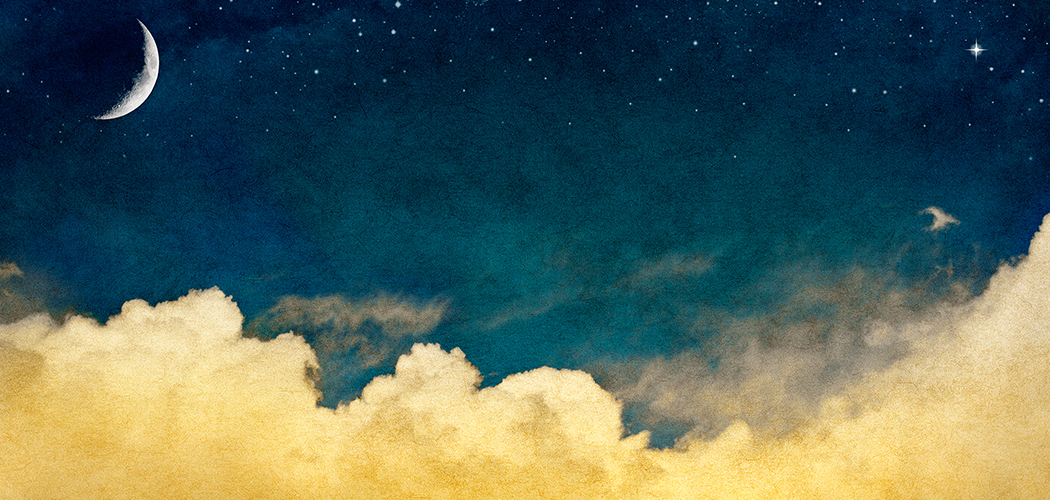[title subtitle=”Fiction: Marla Cantrell”][/title]
I’m driving past Gregory Cemetery on a day in July when the heat has already topped one hundred degrees. That doesn’t stop the ladies who come every morning bearing tin-foil-covered jars that hold roses from their gardens. The roses don’t last long on the headstones, what could in this Arkansas heat, but that doesn’t stop them.
My mama is one of those women. She wears boxy dresses zipped up the front that she calls dusters. She wears house shoes to town. She flat-out embarrasses me sometimes, but I love her more than air conditioning.
Not long ago, somebody plowed their pickup into the cemetery’s wrought-iron sign that showed the year this graveyard started. Eighteen hundred and something. I should remember; I drive this road every day to and from work, but now the sign is gone, and so is my memory.
Somebody should put the sign back up.
At home, my daughter Virginia is sitting in front of the TV, watching one of those shows with foul-mouthed housewives who pull out each other’s hair and eat air for dinner so they can have cocktails after. I could hear those women in the background when I called to see if Virginia wanted me to bring her something for dinner.
Virginia is eighteen. Virginia has reminded me of a racehorse ever since she turned thirteen. She has spindly legs and long brown hair and eyes that look at every other girl like they’re something to defeat.
We’re fighting right now. She wants a tattoo. I want her to go to college. Neither of us is very good at compromise.
When I come in the door, she switches the channel to a show about six-hundred-pound people and the doctors who try to save them. Hollow men and hollow women, and gallons of food that never fill them up. I understand emptiness, and it breaks my heart. But I know Virginia is digging at me with this program; I’ve put on twenty-seven pounds since January without even trying.
I point to the TV where a lady fills up a king-size bed. “I get what you’re doing, girl. And I don’t appreciate it one dad-gum bit.”
Virginia flips her hair and narrows her eyes. She looks seven years older when she does this. It gives me a shiver, imagining the future. In seven years I’ll be forty-nine. Dear lord.
“What?” she says.
“You think skinny lasts a lifetime, but let me tell you, your hormones change. Your body turns on you. You look in your closet one day and the dress you wore to last year’s Christmas party looks as small as a Barbie dress.”
Virginia crosses her arms. “Won’t happen to me. I won’t let it.”
Later, when I call Mama, she says, “Linda, you need to stop provoking that girl. She’ll go to college if she wants to. She’ll get a tattoo whether you like it or not.”
“I hate it when you tell me the truth,” I say. And Mama says, “The truth is the worst.”
The next day, I’m walking past the Pasta Grill on Main Street. I catch a glimpse of myself in the glass storefront, and I’m astonished by my body. I lift my hand to my hair and watch my upper arm jiggle. Mama calls this affliction the “Hi, Betty.” As in, when you wave at your friend Betty, your saggy flesh becomes a bedsheet on the clothesline just as a storm front moves in.
Virginia calls as I’m getting into my car. I see her name come up on the phone’s screen and I let it go to voicemail. When I listen to the message, she says, “Hey, Mom. Erin and I are heading to Eureka Springs for a few days. Her dad has a cabin there. We’re going to meditate and stuff.” The phone goes quiet, and then Virginia laughs, “Just kidding! Anyway, wanted to let you know.”
I should call her back. Tell her she has to ask permission, but I’m not up for it. She is in the wasteland between childhood and adulthood. I am there with her.
I call my mom, who says, “When you were eighteen, you crawled out the window in the middle of the night to meet that guy with the two different color eyes.”
“Rennie,” I say, remembering, and despite it all, I smile.
“Rennie,” Mama says. “Didn’t he end up in prison?”
“He owns a chain of Taco Bells,” I say, and Mama says, “I never liked that boy.”
The wind has kicked up, and when I pass the cemetery, it is littered with jars, their tin-foil wrappings reflecting the light. Tomorrow my mama and the other ladies will pick them up. Replace them with new jars, new flowers.
At home, I eat a Lean Cuisine. At eight o’clock on the money I go to Sonic for a half-price root beer float. I decide to give up sleeveless dresses, sleeveless shirts, sleeveless nightgowns. The float tastes soapy and sweet.
The next night, I scroll through Facebook, looking for Rennie. When I find his page, I see he’s gone bald. He’s done that thing men do now, shaving his head and shining it like a bowling ball. He’s probably forty pounds heavier, but he was a stick when I knew him. He has pictures of himself on a bass boat, on a motorcycle, on a cliff overlooking the sea. He has a wife who looks bored, even as she’s standing beside a new Lexus with a red bow on top.
I wonder if Virginia will love anybody the way I loved Rennie. Whether, years later, she will sit alone on a summer night and remember the way it felt to crawl out a window and run to a waiting car. To drive down country roads that smelled like dust and hay and the promise of dew. To end up at a swimming hole after midnight, the water like salvation on those hot nights.
I remember his arms around my waist.
The next morning, I go visit Mama. She says, “You didn’t have to end up alone.” She is sweeping her screened-in porch, her broom sounding like cornstalks rattling in the wind. She names the men I’ve loved or sort of loved or tolerated through the years, the number so high I start to sweat.
I hold my hand up. “Mama,” I say. A warning. An alarm about to go off.
“Don’t you ‘Mama’ me,” she says.
“I’m not alone,” I say. “I have Virginia.”
“Honey,” she says. “Virginia’s nearly gone.”
I stare her down, but Mama keeps sweeping. It seems as if she’s been sweeping my whole life.
Virginia comes home on a Sunday evening, sunburned, smelling like coconuts, a pair of cut-offs covering her bikini bottoms. Her hair is in a messy bun, and I can see that someone has used a ballpoint pen to draw a crescent moon and a four-pointed star on her back, just above the hooks on her bathing suit top. “What’s that?” I ask, and Virginia shrugs. “Nothing permanent,” she says, and I say, “Nothing ever is.”
Still, it’s a beautiful thing. I put my finger against the drawing and trace the lines of the moon. I remember the first time she said the word ‘moon.’ She was nearly two. It sounded like moo. But it was nighttime, and we were on a quilt in Mama’s yard, so I knew what she meant.
“What’s the sun and moon symbolize?” I ask, and Virginia shrugs again. “Not everything has to mean something.”
“I remember the first time you said ‘moon.’ We were in Grandma’s yard. Grandpa had just died. I mean it. He had just died. The ambulance was in the yard with its awful lights pumping. The EMTs were still trying to bring him back. Grandma was wailing, and that made you cry, so I grabbed a quilt and took you outside.”
“That’s an awful story,” Virginia says. And I say, “It sure is.”
“I took you to the funeral. Not my best decision. And then we were standing by a pile of red clay at Gregory Cemetery watching his casket go into the ground. I kept thinking how perfect the hole was. Chiseled sides. Flat bottom. Whoever dug that hole knew what they were doing. It made me feel better somehow, that someone cared enough to make that rectangle smooth and clean.”
“Why are you telling me this?” Virginia asks. Her eyes are rimmed in black. Too much mascara. Too much eyeliner.
“Because life is over in a flash. One moonlit night you’re sneaking out your bedroom window to meet a guy you think could change your life, and the next your daughter is walking out the front door.”
Virginia’s skin is the color of honey. Her eyes are pools. She could be on the cover of a magazine, she’s that beautiful.
“That’s what front doors are made for,” she says. When she frowns the way she does, the number eleven appears for just a second on the spot between her eyes. And then she says, “Your life isn’t nearly over, Mom.”
It’s the nicest thing she’s said to me in weeks.
Gregory Cemetery is a mile from our house. Our house is on a blacktop road that is filled with more possums than cars at night. Tonight, the clouds are putting on a show, moving fast across the sky, covering and uncovering the moon and stars like a kid playing peek-a-boo. I walk in front of Virginia, holding the flashlight. When we get to the cemetery, we tread carefully. Anybody who’s raised right knows how not to step on graves. When we get to Daddy’s plot, we spread the quilt we’ve brought off to the side. It is an old quilt, older than my daddy would be if he were still alive.
Virginia moves the jar of roses off the grave. The roses are memories of their former selves, but when the jar passes beneath my nose, I can smell their peppery perfume. “Grandma should plant a rose bush here,” Virginia says. “It would save her a lot of trouble.”
“Sit,” I say, and Virginia sits cross-legged next to me. Through the quilt I can feel rocks and twigs, the hard edges of grass turned to hay.
Virginia points toward the grave. “Is it possible to love someone you don’t know?” I say, “Sweetheart, that’s the easiest kind of love.”
We lie down. We turn off the flashlight. Above us, Venus shines. I point. “There’s Venus. The only planet that goes in a different direction from all the others.”
The cemetery is loud with birds and frogs and things that scamper out of sight. I stop talking and listen. Tomorrow, Virginia could go away for good. Next week, I could step off a curb at just the wrong time. But tonight, I am the moon. Virginia is my star. Tonight, we are everything.




